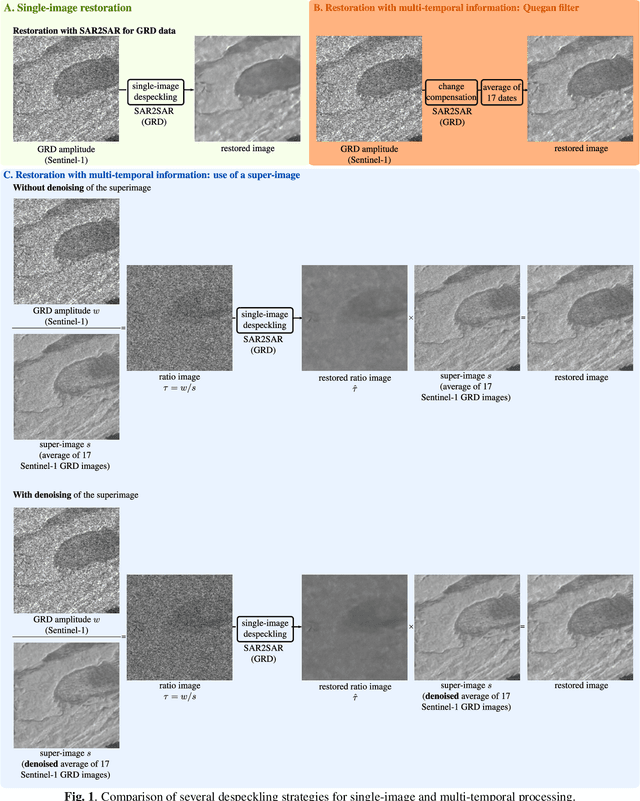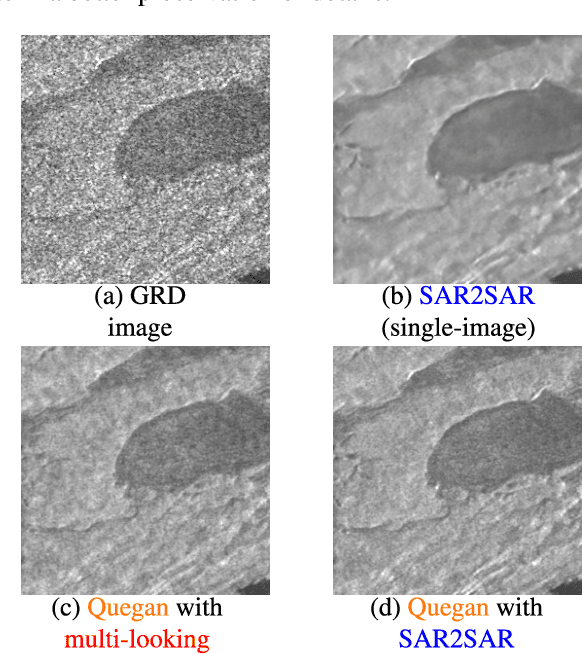Fast strategies for multi-temporal speckle reduction of Sentinel-1 GRD images
Paper and Code
Jul 22, 2022

Reducing speckle and limiting the variations of the physical parameters in Synthetic Aperture Radar (SAR) images is often a key-step to fully exploit the potential of such data. Nowadays, deep learning approaches produce state of the art results in single-image SAR restoration. Nevertheless, huge multi-temporal stacks are now often available and could be efficiently exploited to further improve image quality. This paper explores two fast strategies employing a single-image despeckling algorithm, namely SAR2SAR, in a multi-temporal framework. The first one is based on Quegan filter and replaces the local reflectivity pre-estimation by SAR2SAR. The second one uses SAR2SAR to suppress speckle from a ratio image encoding the multi-temporal information under the form of a "super-image", i.e. the temporal arithmetic mean of a time series. Experimental results on Sentinel-1 GRD data show that these two multi-temporal strategies provide improved filtering results while adding a limited computational cost.
 Add to Chrome
Add to Chrome Add to Firefox
Add to Firefox Add to Edge
Add to Edge